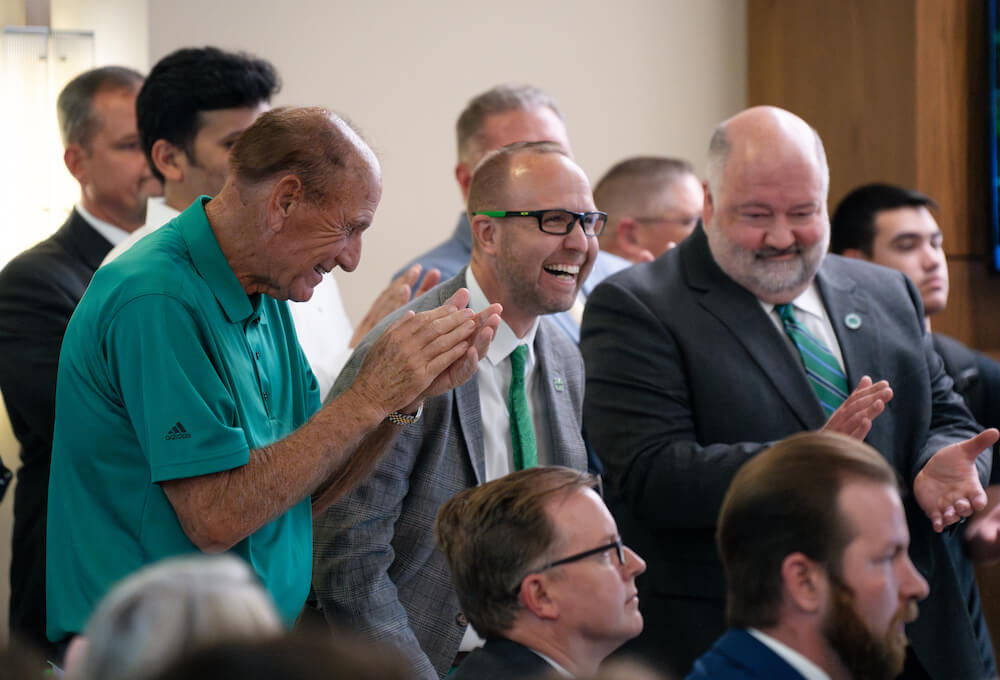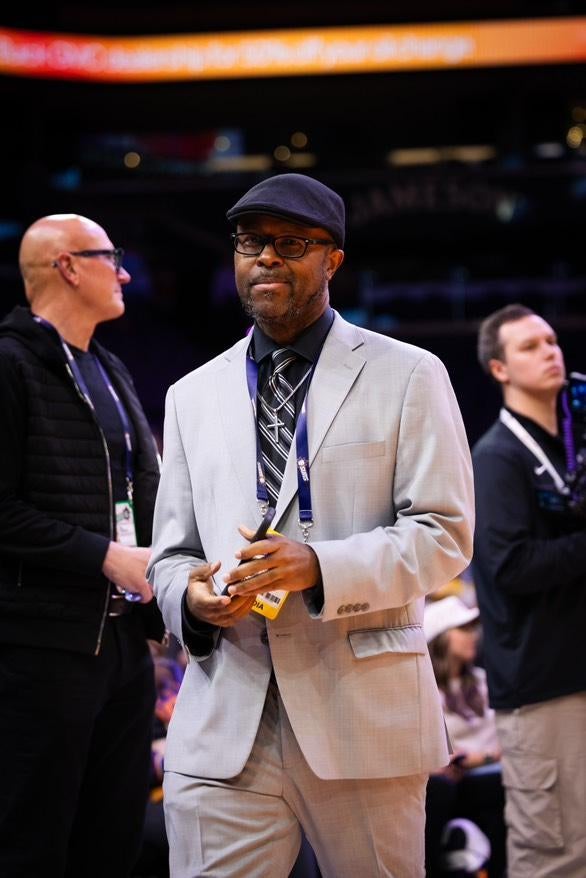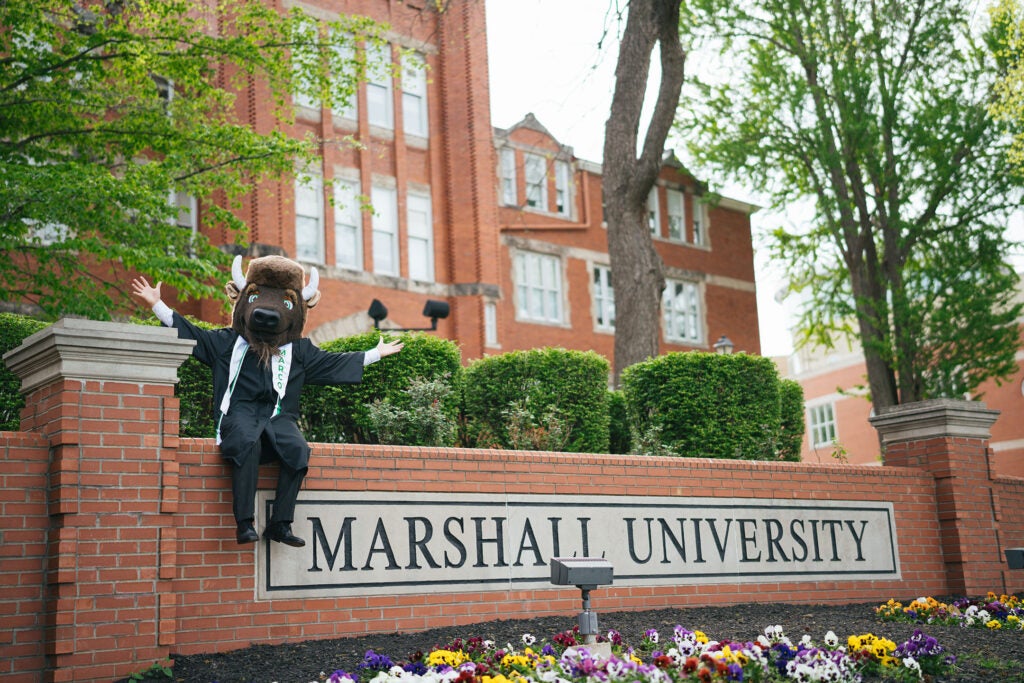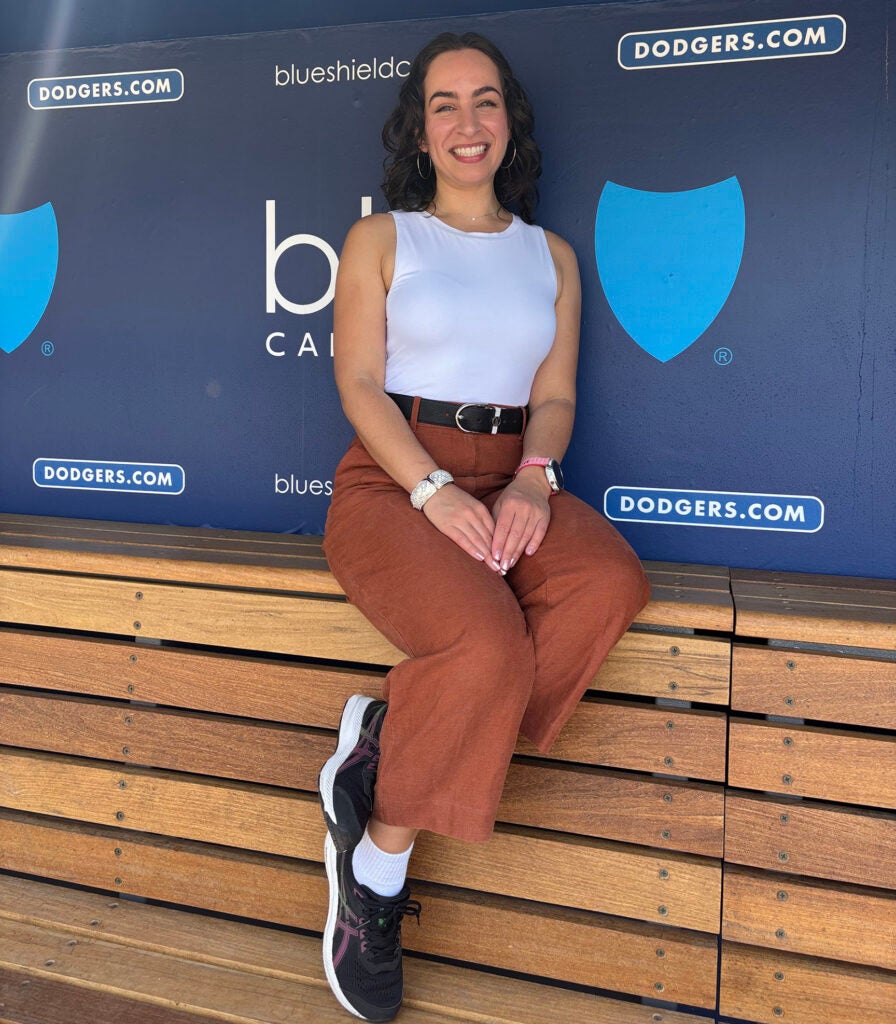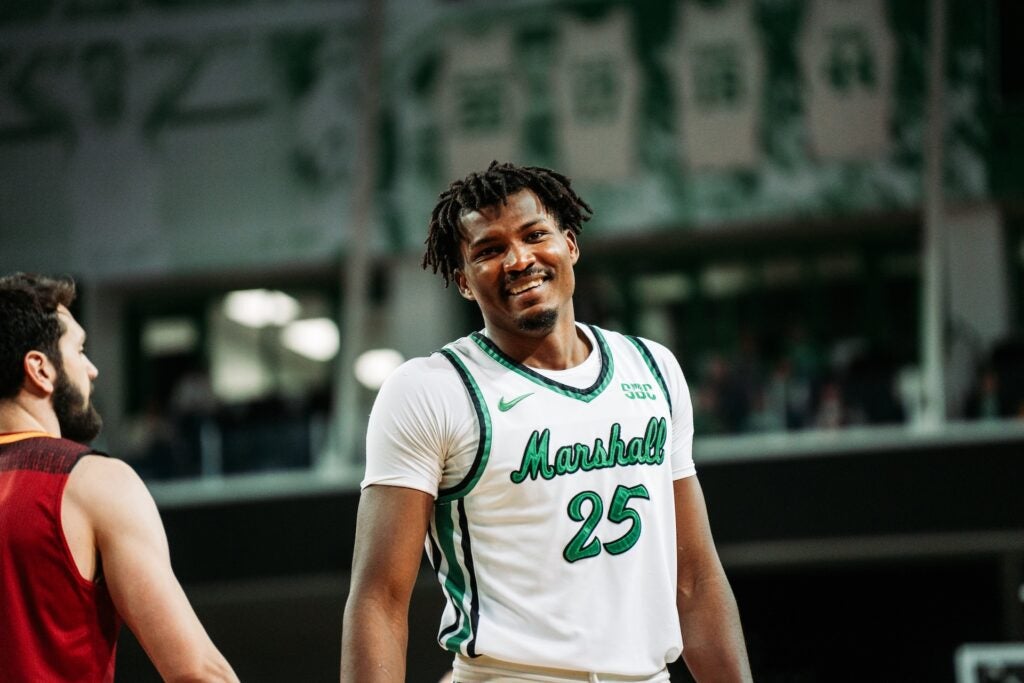And he loves it when he sees those students a few years later. They’ve embarked on those cyber careers in which they’re solving problems that he couldn’t even imagine while they were sitting in his classroom. That’s when he knows that teaching cyber security at Marshall University is changing lives and the world.
And here at Marshall, it’s just getting better all the time.
Just last week, Marshall celebrated a $45 million state contribution to a new facility that will house Marshall’s Institute for Cyber Security. Meanwhile, after years of coaching highly competitive Marshall cyber teams, Brunty was named head coach for the US Cyber Team and will lead the team for the next year in international cyber competitions.
Both are outcomes of an ongoing effort among Marshall’s cyber education experts to establish one of the leading cyber programs not only in the region, but the country.
“The new center is going to push our program into a completely different stratosphere,” Brunty said. “When you have a facility like that, it attracts the best students and employers. You’re going to have the facilities to do the things you only dreamed of 10 years ago. That’s the cool thing. These dreams become a reality when you have the space to perform them in.
It will change things for the state, he said.
“To think that you can take a kid out of a place where they felt impoverished, give them a skill to compete for a remote job where they can go back home and make a six-figure salary in an area that was struggling, and give back to that community … there are very few fields that you can do that in right now,” he said.
Brunty said he was recently reminded of the phrase, “A rising tide lifts all boats.”
“For us, this is our time that our tide is lifting,” he said. “It’s a time to lift Marshall up because it gave to me so many years ago. You’re able to give back to a place that gave so much to you.”
For him, helping Marshall is personal.
There are so many moments that Brunty can remember when Marshall University came through for him. He remembers attending a business camp on campus as a high-schooler, when he met some professors who piqued his interested in computer science and criminal justice.
He remembers Dean Sam Damron, who kindled his interest in computer forensics, and he remembers being a grad student working in Career Services when the director lined up an interview and helped him land his first professional job with the West Virginia State Police.
“I know that there are kids out there like me,” he said. “I didn’t grow up with much. I was the first person in my family to set foot on a college campus. … I know there are a lot of kids in southern West Virginia in that same boat. For me, it’s personal. Yes, you can go to some big, R1 institution and bring in all this money, but you won’t have the impact there that you have back home here. I want to see all that happen back home here at Marshall.”
He doesn’t want to just keep training students to send them out of state.
“It’s been kind of heartbreaking because there weren’t any jobs here for them,” Brunty said. “They’re competing for jobs in DC and all over the country. This is going to bring a lifeline to this area, specifically, plus vault us into a national program.”
It’s a far cry from when Brunty came to Marshall in the early 2000s after graduating from Cabell Midland High School.
“The fact is, when I got here, Dr. Sam Damron, who was at that time the associate dean of the liberal arts college and a criminal justice professor and I had a shared interest in technology, this new upcoming field of computer forensics, which was only done by the FBI at that time. As a student, I thought, ‘I want to get involved in that.’ ”
A lot of cyber security was being self-taught at that time, but he had prepared himself as much as possible through his undergraduate and graduate studies at Marshall, earning his undergraduate degree in Criminal Justice and Criminology in 2005, graduate degree in 2009 (and more recently his doctorate in Information Technology from Middle Georgia State University).
“There were so many people at Marshall involved in getting me into the pathway that I’ve had,” Brunty said. “Without that support system, I’m confident that none of this would have happened.”
He held his first job with the West Virginia State Police for seven years. He started teaching part-time at Marshall in about 2007 and joined full-time in 2012. Brunty and his team in Cyber Forensics and Security, including John Sammons and Bill Gardner, have been working together since cyber professionals in West Virginia were a much smaller network.
“Less than two dozen people came to mind when you were talking about that field 20 years ago in West Virginia,” Brunty said. “The FBI was the first dabbling in the investigative piece. You had hacker groups that existed. I met Bill through 304Geeks and HackerCon/SecureWV and things like that. That’s where we connected years and years ago. Through that, we made connections and decided that we wanted to build an academic program. Not a lot of schools were offering cyber security programs at that time.”
They’ve been helping shape Marshall cyber students into the best of the best for some years now. And Marshall’s 2020 National Cyber League Championship was a career highlight for Brunty, who coaches the university’s team.
“That was a very special moment with a very special group, because they had worked so hard to get there,” he said. “We had logged four top 10 finishes in the National Cyber League, which is impressive in and of itself. We went into that spring 2020 season (knowing) this was the final ride of some of those competitors.”
Being chosen as head coach of the national team is both great exposure for Marshall and an amazing opportunity to work at a new level, he said.
“It’s exciting,” he said. “The competition level is so different at the national and international levels. Here at the school, you’re more focused on a student coming in who knows nothing. It’s ground level, and you’re building them up to be job-ready or to compete in a competition. At this level, these competitors have competed in hundreds of (competitions). The issue now is finding the right pieces to the puzzle to take into international competition.”
He hopes to foster a pipeline system that prepares cyber students early on for international competition, and he hopes to one day see Marshall students on the US Cyber Team.
“Marshall is starting to get recognition. I think that will draw students,” he said. “We’ve been winning with regional students.”
As the head coach for the US Cyber Team for the next year, Brunty will get to compete on different continents, and he hopes to introduce the national team members to Marshall University’s resilience and fighting spirit.
“Marshall is an institution that focuses on rebuilding things. I feel like our national team is in this rebuilding phase, so it’s a good time to have that kind of mindset,” he said. “It’s humbling. I never thought when I came to Marshall that I would be in this kind of role, but I think Marshall has prepared me for this role.”
Along with coaching the elite and teaching about cyber warfare and mobile device forensics, another role Brunty is proud to hold is raising his teenage daughter, and he even finds time to delve into some other hobbies.
“I’m a huge fan of college and high school basketball and football. I love the pageantry and atmosphere of both. I am also into mountain/gravel biking and road cycling as well,” he said. “My favorite movie is ‘Back to the Future Part II,’ and I really love playing Capture the Flag (CTF) and Attack & Defense competitions, even though I formally ‘retired’ since I started coaching cyber teams.”
He loves cyber security because it affects people in big ways.
“It’s an ever-changing field that solves people problems,” he said. “That is the most intriguing thing about it. Every problem that we solve directly affects people, whether it be recovering from a breach, or fixing this patch (a vulnerability in the system) or investigating something. Everything goes back to being a people problem, and it’s nice to see the fruits of your work.”
It’s also challenging, in a good way, he said.
“I’ve never felt comfortable in this field,” Brunty said. “There’s always something new to know. It never gets stagnant. My comfort level has gotten better at this point, so that I think I might be able to solve a problem, but I don’t know that. And I didn’t feel that way years ago, early on, so I know how our students feel.
“I just love being there at that time, when I can say, ‘Your knowledge has so surpassed mine at this point and you’re doing all these cool things that I couldn’t even have dreamed of as a student – and you’re looking back fondly on your college years.’ That’s a really neat, fulfilling thing as a professor, to have those stories.”

